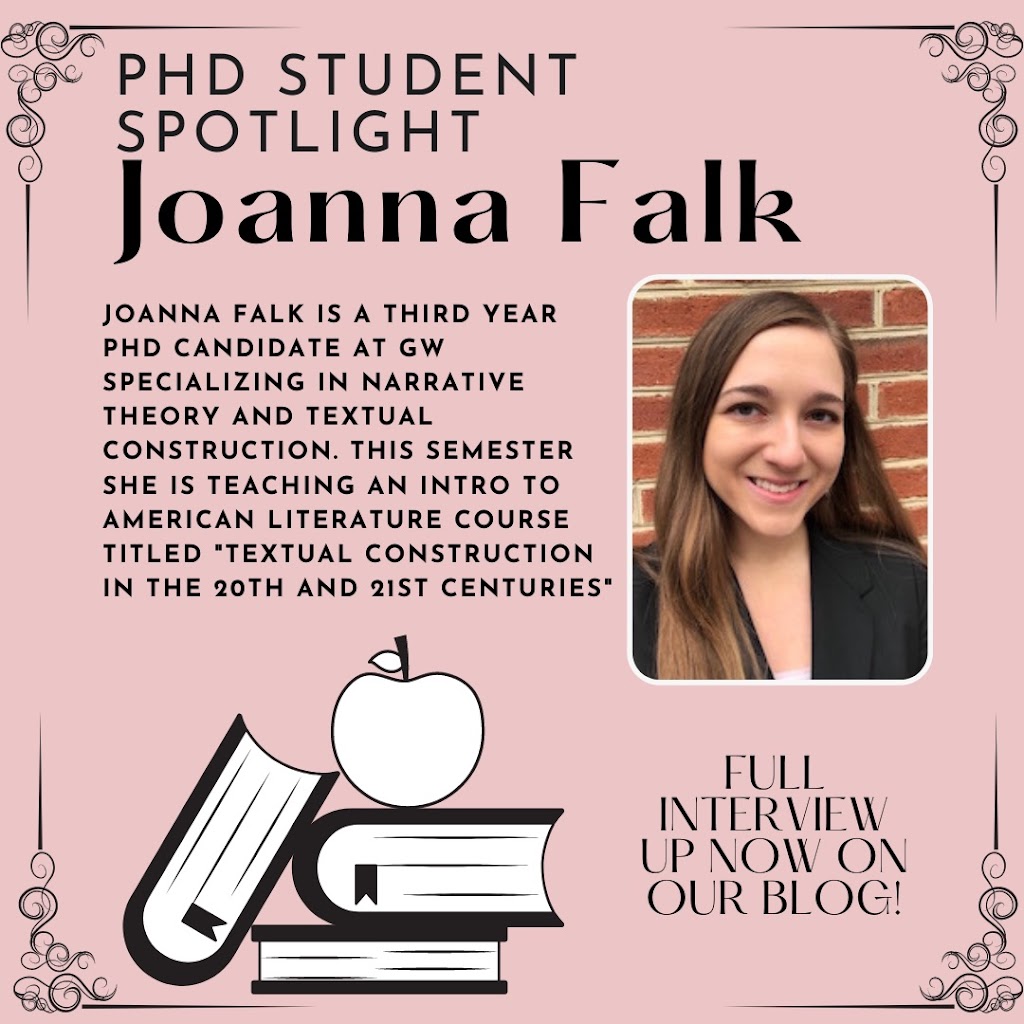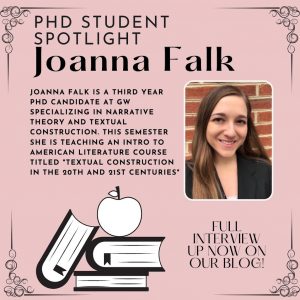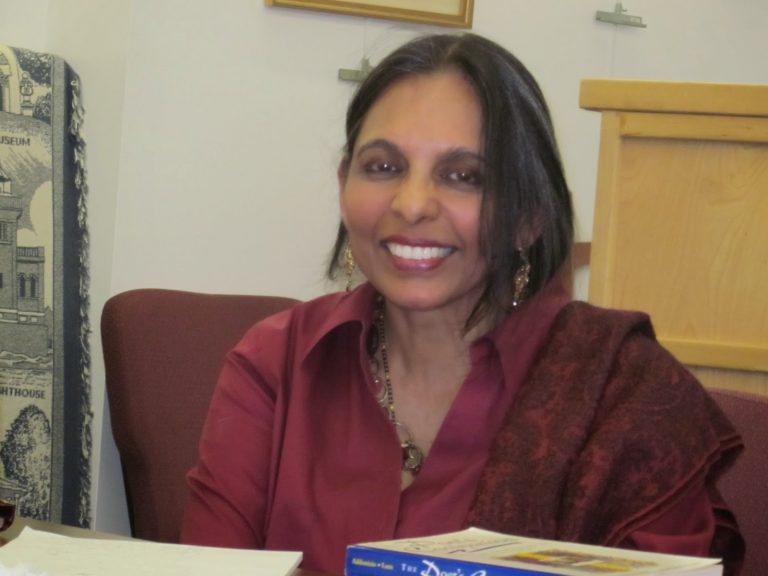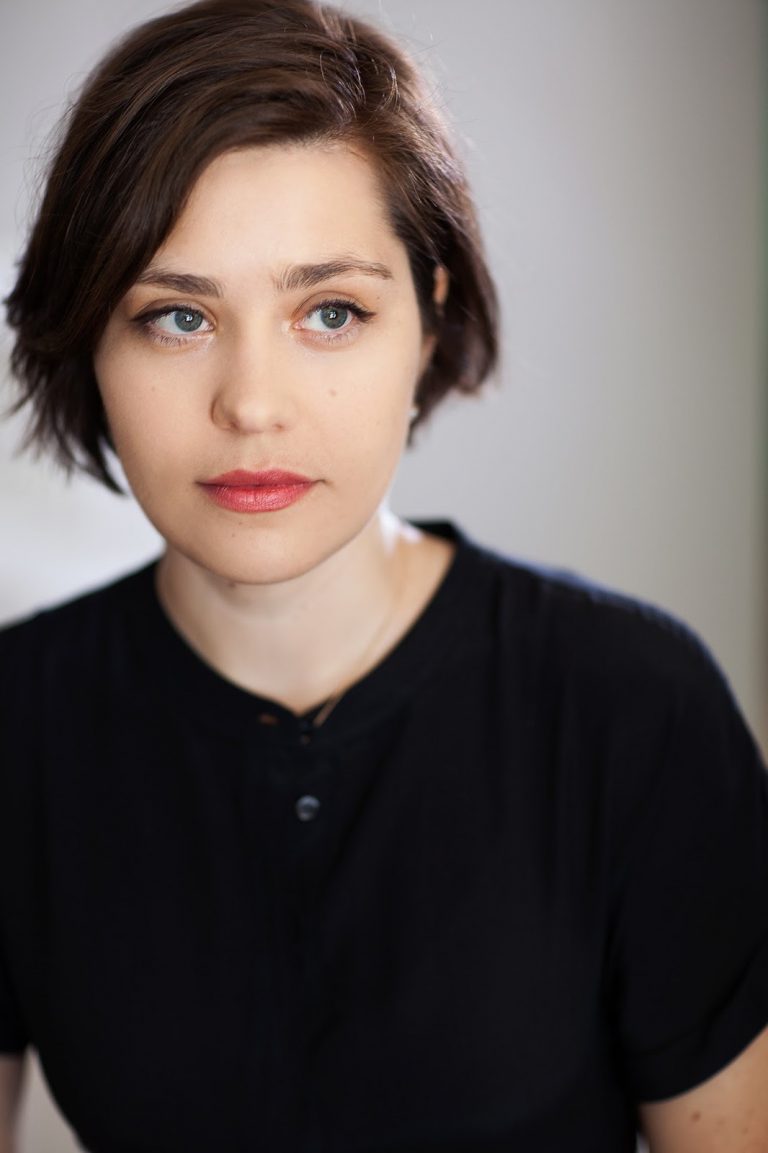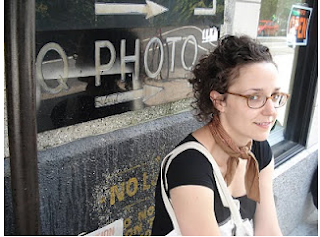PhD Student Spotlight: Joanna Falk
What is the subject of your dissertation and how did you decide what your topic would be?
My dissertation is about paratexts – all the stuff that’s not technically part of the “main” text but that serves to present it in some way. Titles are paratexts, as are introductions, footnotes, endnotes, appendices, etc. More specifically, I decided to focus on texts that play with the idea of paratextuality by formatting part of the “main” text so that it looks like paratext but actually isn’t. I’m calling that practice “paratextual guise.” The course I’m teaching in Fall 2021 will be about this topic, so, if you’re reading this and you’re interested, please enroll in ENGL 3810: Reading the Margins!
The way I decided to write about paratexts is kind of a strange story. In Fall 2015, I was in my first semester of graduate school, in the University of Maryland College Park’s English MA program. I had to write a paper about Heart of Darkness, and I had to choose to write about some aspect of its reception history or its publication history. I decided to go with publication history and stumbled upon this Author’s Note that Joseph Conrad wrote in 1917 to preface a new edition of the book. I thought the Note was doing some really fun, exciting rhetorical work, and I decided to choose that as my topic. Then I discovered that there was no research on it; no one had written about this Author’s Note. I panicked, thinking that must mean I should choose another topic, and Brian Richardson, who is a professor at UMD and also a member of my dissertation committee, said to me, “You know, it’s actually a good thing when you want to write about something no one else has written on.” I tried in 2015 and failed, in my opinion; I wasn’t really ready to do that kind of theoretical work. Fast forward 3 years and I’m in my first semester of the PhD program at GW, vacuuming my apartment, wondering what to write about, and I suddenly remembered that failed project.
What book do you think everyone should read? Why?
What a tough question! I don’t know about prescriptive reading, but I certainly have recommendations. In 2017, I went under general anesthesia for a medical procedure, and when I was waking up – all loopy – I was telling the nurse over and over again that she should read Ghana Must Go by Taiye Selasi. It’s arrestingly beautiful, the prose. So, there’s one. Another one is Joan Didion’s The Year of Magical Thinking. I think that book changed me the most – as a person – because it changed the way I relate to people. She’s so shocked by the sudden death of her husband; she can’t really process the loss. Ever since I read that, I thought, “One day I will go through this. It will be just as shocking, even though I’ve read this book and know to expect the shock.” Now I can’t help but think of all my relationships as temporary, transient, impermanent. (I know that’s pretty depressing and kind of cliché, but it’s also just a reminder to cherish all the people I love in my life and make sure I let them know – now – how much I love them.)
How has your experience with teaching informed your own independent work?
When I started solo-teaching, I assumed I’d learn a lot about pedagogy, which I have, but the biggest surprise has been that teaching has changed the way I read. Knowing that I need to be ready to facilitate a conversation about whatever aspect of the reading resonates with the room (and also be ready to steer the conversation in certain directions. if need be) has made me read more comprehensively: breadth over depth. My usual way of reading is to find some little detail that fascinates me and hone in on that, tracking its every appearance in the text and ignoring most everything else that seems irrelevant.
Aside from your “10 Things I Hate About You” article, do you have any upcoming work you would like us to highlight/promote?
I’m presenting a paper about my dissertation topic at the International Conference on Narrative in May. It’s a four-day conference, sponsored by the International Society for the Study of Narrative (ISSN), so I’m really excited. It’ll be virtual, and my paper is titled “Paratextual Guise, the Logic of Supplementarity, and the Rhetorical Poetics Project.” I also had a book chapter proposal accepted about Sylvia Plath’s poem “Tulips,” in conversation with her novel, The Bell Jar, and disability studies. It’s called “’My Body is a Pebble to Them’: Resisting Medicalization in ‘Tulips’ and The Bell Jar.”

